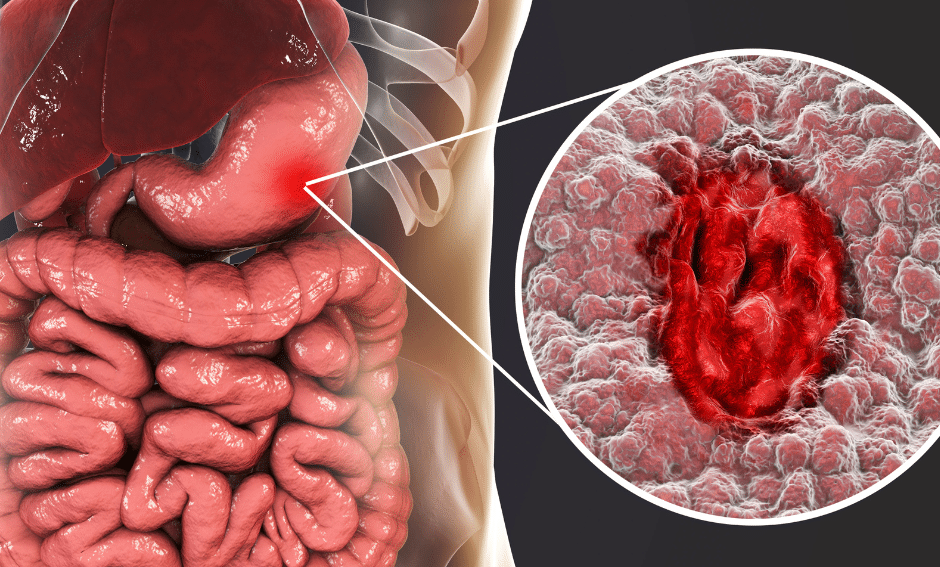April 2022 is Irritable Bowel Syndrome Awareness Month
At Digestive Healthcare Center, we want to keep our patients informed about a wide variety of gastrointestinal health conditions that can impact their daily comfort. One such condition is Irritable Bowel Syndrome (IBS), with April designated as Irritable Bowel Syndrome Awareness Month. IBS is a very common condition in the United States, and with over 200,000 cases seen per year, increased awareness surrounding IBS may help more people identify the symptoms and take the steps needed for improved digestive health and more comfortable living. Keep reading to learn more about Irritable Bowel Syndrome during IBS Awareness Month!
What is Irritable Bowel Syndrome (IBS)?
Irritable Bowel Syndrome is a common, chronic digestive health condition that affects the large intestine (colon). IBS affects one in ten people worldwide. This condition causes the muscles in the colon to either contract strongly or weakly, with each of these scenarios causing different symptoms. Strong contraction of the colon muscles causes bloating, gas, or diarrhea, while weak contraction of the muscles results in a slower passage of food through the colon leading to hard stool. IBS is often labeled as either IBS-D or IBS-C, depending on whether diarrhea or constipation is prevalent. Some patients experience alternating diarrhea and constipation. IBS is also considered to be a functional gastrointestinal disorder, which relates to the way the gut interacts with the brain. This leads to increased sensitivity within the digestive tract.
What is the Difference Between IBS and IBD?
Although their abbreviations are similar, IBS and IBD (Inflammatory Bowel Disease) are two different conditions that must be managed in different ways. IBS is a functional gastrointestinal disorder that is classified as a syndrome, while IBD, which includes ulcerative colitis and Crohn’s disease, is classified as a disease. IBS does not cause inflammation and symptoms rarely require hospitalization or surgery, while IBD causes inflammation and permanent harm to the intestines. IBD can be identified during diagnostic testing, such as a colonoscopy, while IBS cannot and is usually diagnosed by eliminating other potential causes for symptoms. IBS does not increase a person’s risk for colorectal cancer, while IBD does. These conditions must be diagnosed by a gastroenterologist, who can get a clear picture of your unique situation and guide you towards the best next steps to take for your health.
Who is at Risk for IBS?
The causes of IBS are unknown. However, doctors have been able to identify several risk factors that may play a role in the development of IBS. Most people with IBS develop symptoms before the age of 40, often during childhood or young adulthood. Those with a family member with IBS have an increased risk of developing it, and women are twice as likely as men to develop IBS. Hormones are thought to play a role in IBS since many women with the condition report more severe symptoms around their menstrual cycles. It has also been shown that certain mental health conditions, such as anxiety, depression, or a history of abuse can contribute to IBS.
What are the Symptoms of IBS?
Symptoms of IBS vary widely from patient to patient, but only a small number of patients experience severe symptoms. As mentioned earlier, diarrhea or constipation are often the predominant symptoms, and they can be accompanied by:
- Bloating
- Fatigue
- Excess gas
- Mucus in stool
- Abdominal pain or cramping
- Unpleasant taste in the mouth
- Unexplained weight loss
Those with IBS often experience “flare-ups” of symptoms, which can last anywhere from days to months. During this time, symptoms may be more severe. However, many people with IBS experience symptoms consistently over time.
How is IBS Diagnosed and Treated?
There is no specific test to diagnose IBS, which makes it a condition that is often diagnosed after elimination of other conditions that could be causing the same symptoms. Conditions that are often ruled out include celiac disease or colon cancer. When you see a gastroenterologist for IBS symptoms, they will likely review your medical history and perform a physical examination, along with determining if additional diagnostic tests are necessary. Treatment for IBS is primarily focused on relieving symptoms, and for most patients, mild symptoms can be fully managed by making diet and lifestyle changes. Your doctor may recommend that you eliminate certain gassy foods from your diet (ex: broccoli, cauliflower, cabbage, and carbonated drinks). Treating IBS also involves learning what your triggers are, such as stress, and properly managing them. Your doctor may also encourage you to exercise regularly, increase fiber in your diet, and keep a food diary to provide insights into which foods may trigger flare-ups.
What is a Low FODMAP Diet?
A low FODMAP diet is an eating plan that is sometimes used to help those with IBS determine which foods exacerbate and reduce symptoms. FODMAP stands for fermentable oligosaccharides, disaccharides, monosaccharides, and polyols. These carbohydrates are more difficult for people to digest, and this diet temporarily restricts them to relieve symptoms and give the lining of the gut a rest and a chance to restore itself. This diet is often suggested for a limited period of time and can be beneficial for those who want to isolate the foods that may be causing their symptoms. Talk to your doctor before trying a low FODMAP diet – there are several steps that need to be followed, and your doctor can help determine if this is the right next step for you.
How to Get Involved During IBS Awareness Month
April was designated as IBS Awareness Month by the International Foundation for Gastrointestinal Disorders in 1997, and the foundation states that “during this time, we work to focus attention on important health messages about IBS diagnosis, treatment, and quality of life issues.” An increase in IBS awareness can lead to increased research, educational opportunities, and improved patient care, and since this is such a common disorder, widespread talk surrounding IBS can help lead those with GI symptoms towards the proper diagnosis. During IBS Awareness Month, we at DHC encourage you to share your story if you are living with IBS, and encourage those around you to schedule an appointment with a gastroenterologist if they are experiencing uncomfortable GI symptoms.
Care for Digestive Health Conditions in NJ at DHC
At Digestive Healthcare Center, we work with patients of all ages to diagnose and treat a wide range of digestive health conditions, including IBS. Gastrointestinal conditions can have a negative impact on your daily health and comfort, and proper diagnosis is the key to determining the best next steps. Our offices in Hillsborough and Somerville, NJ offer patients access to various procedures and tests to help you stay on top of your digestive health all year long. To learn more about IBS or the care we provide, or to schedule an appointment with one of our gastroenterologists, please contact DHC today!
Make an Appointment for Comprehensive Digestive Care in NJ
At Digestive Healthcare Center, we want each patient at our three offices in New Jersey to feel confident about their digestive health. We encourage you to contact us today to make an appointment with one of our expert gastroenterologists – don’t wait to start putting your digestive health first!
Recent Blogs
Learn more about all things digestive health and wellness by checking out our recent gastroenterology blogs.

Infusion therapy has become a vital treatment option for individuals with Crohn’s disease, offering relief when traditional medications may fall short. This method delivers medication directly into the bloodstream, providing quicker and more targeted effects to help manage inflammation, reduce symptoms, and improve quality of life. For those with moderate to severe Crohn’s disease, infusion […]

The Advancement of Ulcerative Colitis Treatment Ulcerative colitis (UC) is a chronic inflammatory bowel disease (IBD) that affects the lining of the colon and rectum. Those diagnosed with UC often experience flare-ups that can significantly impact their quality of life. Fortunately, advancements in medical treatment have made managing this condition more achievable. One option is […]

Diverticular disease and diverticulitis are related digestive health conditions that affect the large intestine (colon). With diverticular disease, small, bulging pockets develop on the lining of the colon. When these pockets become inflamed or infected, the condition is called diverticulitis. They are very common – especially after age 40 – and rarely cause problems. At […]
























